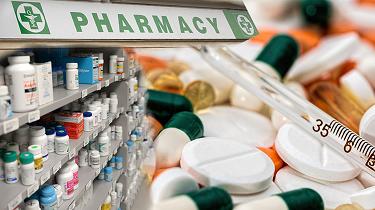Between July and September 2023, pharmaceutical imports into Nigeria reached a substantial N81.81 billion, marking a notable 68 per cent increase from the N48.74 billion recorded in the same quarter of the previous year. This figure also reflects a 27 per cent upswing from the N64.38 billion reported in Q2 2023, as per the analysis of foreign trade reports by the National Bureau of Statistics (NBS).
In Q3 2023, medication imports constituted 0.97 per cent of total imports, slightly lower than the 1.12 per cent in the previous quarter but marginally higher than the 0.97 per cent recorded in the corresponding quarter of the prior year.
Factors contributing to this surge include the devaluation of the Naira and the departure of GlaxoSmithKline (GSK), necessitating increased reliance on foreign imports to meet healthcare demands.
India, the United States, China, France, and Germany were the primary sources of these pharmaceutical imports, with India accounting for N33.68 billion, the US at N15.3 billion, and China at N9.98 billion. The devaluation of the Naira, coupled with foreign exchange shortages, has compounded challenges for the Nigerian pharmaceutical industry, leading to a vulnerability to currency fluctuations.
The exit of major pharmaceutical players, such as GSK, and the decision of Sanofi-Aventis Nigeria Ltd. to shift to a third-party distribution model have further contributed to the complexities faced by the industry. These changes, along with operational issues, insecurity concerns, and government policies, have collectively led to increased drug prices in the country, with some experiencing surges of up to 1000 per cent.





